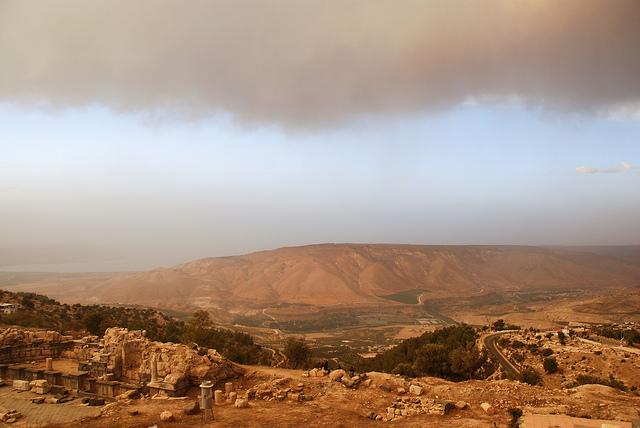The Saudi prince’s dangerous war games
Posted By Shlomo Ben-Ami on November 24, 2017 @ 12:30

A series of stunning political developments, originating in Saudi Arabia, has been roiling an already volatile Middle East. Is a major new war in the offing?
Saudi Arabia’s ambitious 32-year-old crown prince, Mohammed bin Salman (widely known by his initials, MbS) is overseeing an historic (and destabilising) transformation of the Kingdom’s economy. On 4 November, he ordered the arrest of many of the country’s most powerful princes and officials. The move, framed as an anti-corruption drive, was a brazen bid to consolidate power.
But MbS’s ambitions extend far beyond his country’s borders. On the same day, Lebanese Prime Minister Saad Hariri announced his resignation in a live television broadcast from Riyadh, accusing Iran of causing ‘devastation and chaos’ through its meddling in other countries.
When, days later, Riyadh was targeted by a long-range missile launched from Yemen by Iran-backed Houthi rebels, the Saudis lost no time in warning Iran of a possible war. Saudi leaders also denounced Hezbollah—Lebanon’s Iran-backed Shia militia—for aiding the Houthis. Citing the inclusion of Hezbollah members in Lebanon’s government, Saudi Arabia accused the country of declaring war on the Kingdom, and ordered its citizens to leave the country.
MbS clearly hopes to establish Saudi Arabia as the Persian Gulf’s sole hegemon, and the protector of Sunni Islam throughout the Middle East. But his efforts increasingly look like the work of an immature gambler.
Saudi Arabia has already suffered from the farcical failure of its blockade on Qatar, not to mention its two disastrous attempts to stem Iranian advances in Syria and Yemen. Add to that MbS’s ham-fisted political purge, and the escalation in Lebanon may be viewed as a desperate gambit.
Yet provoking Iran is probably not in Saudi Arabia’s best interests. As MbS knows all too well, the Kingdom cannot match Iran’s military might. And his likely back-up plan—increasing security cooperation with Israel—might not work as he would like.
True, Israel’s chief of staff, General Gadi Eisenkot, spoke in a rare interview with a Saudi newspaper about the ‘many shared interests’ between the two countries. Moreover, Defense Minister Avigdor Lieberman has warned that Israel would not permit the consolidation of a Shia ‘axis in Syria’. And Prime Minister Benjamin Netanyahu has made it clear that Israel will not allow Iran to gain military ground and naval footholds in Syria.
But it is folly to think that Israel would engage in full-scale war north of its border for Saudi Arabia’s sake. It would not even be the first time Israel frustrated Saudi Arabia’s expectations of an intervention. In 2012, Netanyahu did not follow through on threats to attack Iran’s nuclear installations.
More recently, Israel refused to intervene in the Syrian civil war against Bashar al-Assad’s Shia-affiliated Alawite regime. In fact, Israel has taken great pains to avoid being sucked into that conflict, even as it has scaled up aerial attacks on arms convoys headed for Hezbollah, which has been attempting to open a second front against Israel on the Golan.
Yet it would be irresponsible to dismiss the idea of war altogether. After all, wars on Israel’s northern front have not always been premeditated. And an increasingly self-confident Assad no longer seems resigned to Israel’s insistence that its air force should have full freedom of action in Syria and Lebanon: his anti-aircraft batteries have started to respond to Israeli military flights over Syria. On 11 November, Israeli forces shot down a Syrian drone.
Moreover, Israel has established a new red line in Syria: the protection of Syria’s Druze community, with whom Israel’s own highly loyal Druze citizens have strong bonds. On 3 November, after rebel forces killed nine people in a Druze village inside Syria, the Israeli military warned that it would intervene to prevent the occupation of the village.
While Israel is not interested in waging all-out war, it does not see such a scenario as entirely implausible. In September, it conducted its largest military exercise in two decades, with its air, sea, and large ground forces spending two weeks simulating conflict on both the Syrian and Lebanese fronts. A massive evacuation of northern Israel’s civilian population was also simulated. After two wars with Hezbollah that ended in a sort of tie, Israel has made it clear that, in any new conflict, the goal would be unequivocal victory.
Hezbollah, drained by its costly effort to support Assad in Syria’s civil war, is not particularly eager to engage in a showdown with Israel now. Iran, for its part, has avoided disrupting Lebanon’s stability and always-precarious truce with Israel, in order to enable Hezbollah to focus on Syria.
But Saudi Arabia would welcome a clash between Israel and Hezbollah, believing that it would inevitably lead to a confrontation between Israel and Iran. This is particularly true now: as the fighting in Syria subsides, the Saudi-led Sunni axis is eager to compensate for its losses there, and thus is pushing Lebanon as the next battlefield.
As it stands, Lebanon remains split between Hezbollah’s pro-Syria and Iran camp—which includes President Michel Aoun—and Hariri’s ‘March 14 Alliance’ of Sunni, anti-Syrian groups, which Saudi Arabia hopes to push into the conflict it so desires. Of course, engaging in a war led by powers that view Lebanon merely as a piece of a broader strategic puzzle is not in the country’s best interests.
It is not in Hariri’s best interests, either; after all, such a conflict would deny his family’s construction companies the opportunity to win lavish contracts for rebuilding Syria.
As MbS plays with fire, US President Donald Trump has offered him broad support, owing to his own animosity towards Iran and, perhaps, the hope that Saudi Arabia will support a US-led peace plan on Palestine. But a more benign enticement must urgently be found. After all, as the Syrian conflict has starkly demonstrated, wars usually defeat their own purposes.
Article printed from The Strategist: https://aspistrategist.ru
URL to article: /the-saudi-princes-dangerous-war-games/
Click here to print.